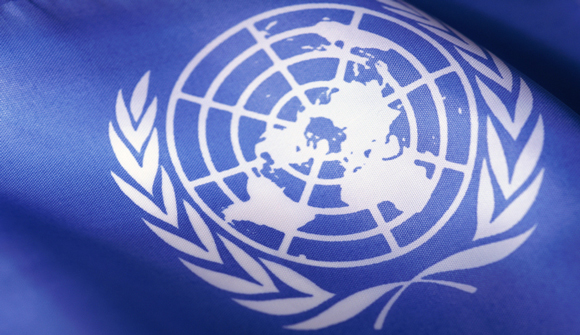
Minamata Convention Agreed by Nations … Global Mercury Agreement to Lift Health Threats from Lives of Millions World-Wide … Geneva/Nairobi, 19 January 2013 − International effort to address mercury − a notorious heavy metal with significant health and environmental effects − was today delivered a significant boost with governments agreeing to a global, legally-binding treaty to prevent emissions and releases …The treaty, which has been four years in negotiation and which will be open for signature at a special meeting in Japan in October, also addresses the direct mining of mercury, export and import of the metal and safe storage of waste mercury … Nations with artisanal and small-scale gold mining operations will draw up national plans within three years of the treaty entering into force to reduce and if possible eliminate the use of mercury in such operations … Governments approved exceptions for some large measuring devices where currently there are no mercury-free alternatives … Vaccines where mercury is used as a preservative have been excluded from the treaty as have products used in religious or traditional activities … Delegates agreed to a phase-down of the use of dental fillings using mercury amalgam – United Nations Environment Porgramme (UNEP).
Dominant Social Theme: People need to be protected from mercury.
Free-Market Analysis: In a little-noticed convention (see above), the United Nations is once again making it harder for poor people to earn a living. In this case it is the small gold miners that use mercury to help them sift for gold.
While the UN provides the requisite disclaimers having to do with finding "alternatives" to mercury for small miners, we wonder how much they'll cost. Additionally, we note this latest attack on people's ability to make a living excludes Big Pharma: Mercury will continue to find its way into vaccines because there are currently "no mercury-free alternatives."
Amazing, isn't it, the concern that the UN shows for multi-billion dollar corporations? Small miners are expected to find alternatives as soon as possible but UN honchos are most concerned that such treaties may pose a difficulty for certain multinationals.
Here's some more from the UNEP announcement:
Pinpointing populations at risk, boosting medical care and better training of health care professionals in identifying and treating mercury-related effects will also form part of the new agreement.
Mercury and its various compounds have a range of serious health impacts including brain and neurological damage especially among the young …
The booming price of gold in recent years has triggered a significant growth in small-scale mining where mercury is used to separate gold from the ore-bearing rock.
Emissions and releases from such operations and from coal-fired power stations represent the biggest source of mercury pollution world-wide.
Workers and their families involved in small-scale gold mining are exposed to mercury pollution in several ways including through inhalation during the smelting.
Mercury is also being released into river systems from these small-scale operations where it can contaminate fish, the food chain and people downstream.
• Governments agreed that the treaty will require countries to draw up strategies to reduce the amount of mercury used by small-scale miners.
• Nations with artisanal and small-scale gold mining operations will draw up national plans within three years of the treaty entering into force to reduce and if possible eliminate the use of mercury in such operations.
• Public awareness campaigns and support for mercury-free alternatives will also be part of the plans.
We recall a few years ago that a non-profit was launched with great fanfare that was intended to demand accountability from various nation-states and junior mining ventures around the world regarding mercury pollution. When we tracked the funding for the non-profit, we found one of the Rockefeller foundations was prominently involved.
This makes sense, of course. Top elites own a good deal of gold and likely they hate the idea that others also have access to precious metals. Gold and silver are among the most liberating instrumentalities of freedom. Anyone can dig up gold and silver and substantively change their prospects and lifestyle. Such "agreements" as Minamata make it more difficult for this to take place.
And perhaps that's the point. Big Oil funds green efforts to ban drilling because the bans force up the price of oil and make it more difficult for small competitors to get into the business. Barriers to entry are most effective when they are regulatory in nature. The Minamata accord will make it harder for small miners to find gold, thus creating a further scarcity that shall continue to put upward pressure on the price of gold.
Is that the plan? Maybe it has to do with placing the world eventually on a gold standard. Certainly the Minamata signatories have been far more understanding when it comes to various popular uses of mercury that may be far more dangerous to the average person than mercury prospecting for gold.
Most everyone – even now – has mercury fillings; most are subject to mercury in vaccines, as well. Yet these are the two clear exemptions in the current agreement. As usual, agreements like these attack poor people and affect developing nations predominantly.

Like the International Monetary Fund and World Bank, the UN masquerades as an organization that is friendly to small, struggling countries and a proponent of their interests, but is no such thing.
